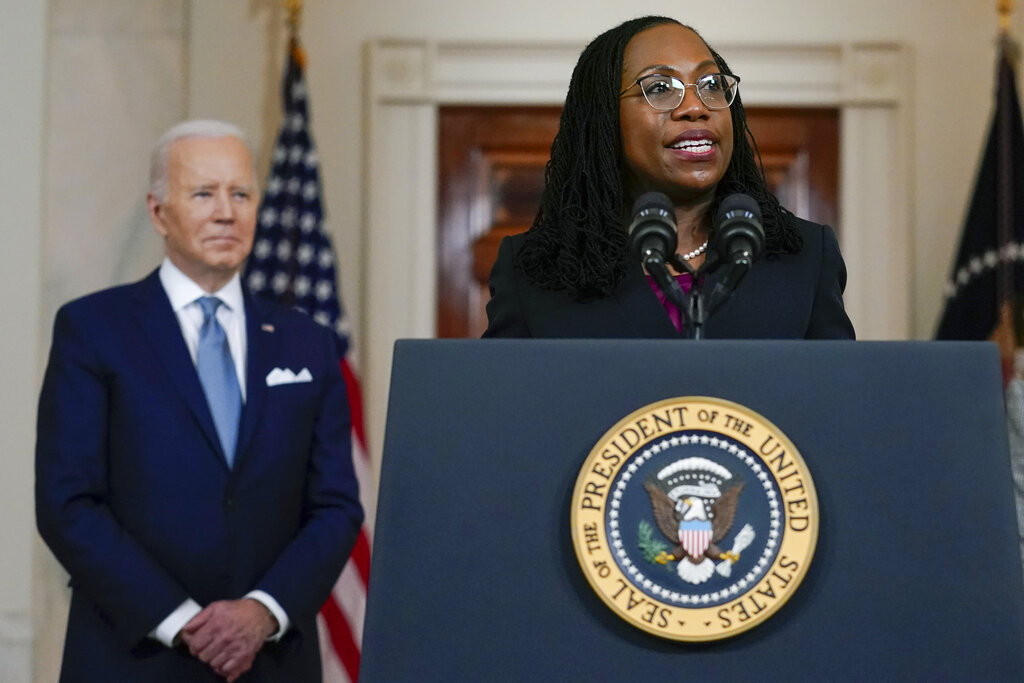
Supreme Court Justice Stephen Breyer announced in January that he will be retiring, giving President Joe Biden and the Senate Democrats an opportunity to choose a new Justice before the almost inevitable Red Wave in the November midterm elections. Many on the American left are still rightfully angered by former Justice Ruth Bader Ginsberg’s failure to reach this same decision during the previous period of Democratic control during Barack Obama’s presidency. Remembering that her death in September 2020 led to the inauguration of far right justice Amy Coney Barrett, Democrats have welcomed Breyer’s decision.
With a senate split evenly between Democrats and Republicans, President Biden will need his selection to be supported by all 50 Democrats if he wants his nominee confirmed. With the Democrats more divided than ever, highlighted by the failure of the conservative wing of the party to support the Build Back Better agenda, his decision could not have been easy. Biden nominated Ketanji Brown Jackson, a federal judge from the District of Columbia U.S. Court of Appeals.
Ketanji Brown Jackson is a strong choice, and perhaps the best that the left could have hoped for given the political circumstances.
While most Supreme Court justices come from prosecutorial and corporate backgrounds, Jackson would be the first Supreme Court justice in American history with a public defense background. The Supreme Court makes major decisions surrounding the rights of defendants on issues such as the rights of the accused during trial, police interactions and the scope of punishments. While the prosecutorial perspective on these issues has always been represented on the bench, the defense perspective has been absent. Jackson would bring some key balance in this regard, as understanding the vulnerabilities and personalities of defendants can lead to more humane decisions in their favor.
Judge Jackson also has a complex family history that will bring a fresh angle to the failed War on Drugs. Her uncle, Thomas Brown Jr., was sentenced to life in prison on drug charges in accordance with a three-strikes law. Jackson referred her uncle to a law firm that was able to convince former President Barack Obama to commute his sentence. This personal connection she has with the War on Drugs would distinguish her from other Supreme Court justices, and provide the bench with a valuable perspective that can bring about a more serious debate on drug enforcement.
\To avoid Republican attacks of being “soft on crime” and “anti-law enforcement”, Jackson can point to her relationship with her brother who is a police officer and war veteran. In her remarks at the White House after President Biden announced her nomination, Jackson mentioned both her uncle and brother, highlighting the nuanced point of view she can provide. While Jackson has powerful liberal values pertaining to racial oppression and drug policy, she has illustrated that she is not a political liability and has respect for law enforcement. This will be vital to push her through the senate confirmation process and communicate to Americans across the political spectrum that she will make judgments utilizing empathy and practicality.
Another valuable aspect of Jackson’s background is her defense of Guantánamo Bay detainees in Habeas Corpus cases. She represented several detainees from the War on Terror and helped them challenge the legality of their detainment without trial. This helped enforce the 2004 Supreme Court ruling where Bush administration policies of detaining suspected terrorists without a fair trial were allowed to be challenged. Most of the inmates at Guantánamo Bay were innocent and detained against international law, and Jackson’s work appears positively in retrospect. However, while America was deep into the War on Terror, this was a courageous provocation of the status quo and displays her deep devotion to the rule of law.
Finally, to the surprise of many Americans on the left-flank in the Democratic party, Biden’s nominee has an impressive pro-union record. Jackson, as an appeals court judge, delivered several blows to the Trump Administration on this front. Most recently, in defense of federal government workers, she nullified a Trump administration rule that federal agencies did not have to renegotiate bargaining agreements after making “small” changes to previously negotiated terms of employment. In June 2020, she halted Trump administration efforts to kill a law preventing employers from delaying union elections. In August 2018, she intervened to weaken several of President Trump’s executive orders aiming to limit what workers unions could bargain on.
Given her impressive background, Jackson’s largest challenge will be to eliminate the notion that she was merely an affirmative action pick, selected by President Biden as a virtue signal to the Democratic base. This task will not be easy given the poor messaging from the White House. Similarly, with the nomination of Kamala Harris for vice president, Biden announced that his Supreme Court nominee would be a Black woman before he announced who specifically the nominee would be. This suggests that Jackson was picked largely because of physical traits she cannot control. While the need for diversity on the court is real, making this concrete point before the nominee is announced undermines the importance of the individual nominee.
President Biden should have announced Ketanji Brown Jackson’s nomination before stating the demographic reason she was picked. This would highlight that she is not just the preferred Black female candidate, but the best candidate overall. Jackson’s largest issue, therefore, is of no fault of her own and is an issue she will overcome by proving to the American people she is more than qualified.
Given her experience as a public defender, as well as her stances on the Drug War, Habeas Corpus and labor union rights, Ketanji Brown Jackson will be an excellent addition to the Supreme Court. Jackson will bring a unique and refreshing perspective to the bench, as well as provide a powerful dissenting voice to the most conservative Supreme Court in recent history.
